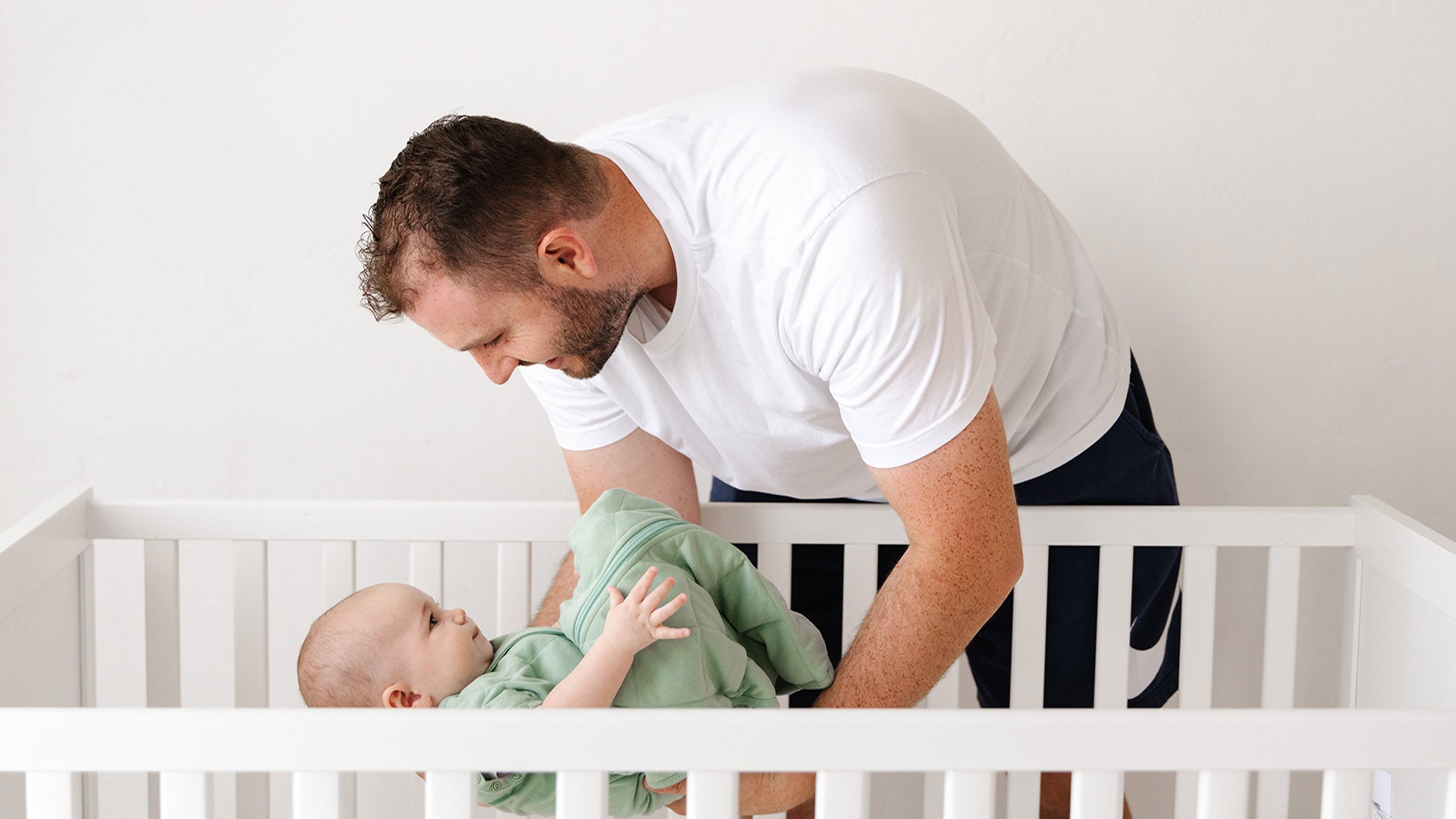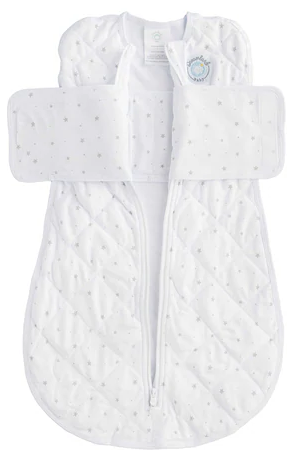Learn the best ways to manage a newborn who doesn’t seem to sleep without being held.
It’s so tempting to hold your baby all the time, especially when their newborns. They’re so cute and adorable, all wrapped up in their swaddle, it’s hard to put them down. But when it comes to getting sleep, for you, the parents, as well as your baby, it’s important that your baby has their own place to sleep, like a bassinet or co-sleeper, to ensure the safest and best quality sleep possible. While most experts agree that there’s no such thing as spoiling your baby, especially as newborns, it can be a difficult habit to break if your baby is used to being held constantly. You will certainly want and need a break, and your baby will sleep better the sooner they learn to eventually sleep on their own, with little to no assistance from you. Don’t worry, that part won’t happen for at least a few more months, but if you’re wondering how to get a newborn to sleep without being held, keep reading for some FAQs on the subject below:
What should I do if my newborn only sleeps when held?
If you’re desperate to figure out how to get a newborn to sleep without being held, something that most parents swear by is swaddling. Swaddling offers that snug feeling that baby is used to from spending 9 months in the womb. Some parents find that baby sleeps better and for longer stretches when swaddled. A pacifier might help, too, for similar reasons – it mimics life inside the womb.
The Dreamland Baby Weighted Swaddle was designed in collaboration with pediatricians, NICU nurses and Certified Sleep consultants. The gentle weight naturally reduces stress and increases relaxation, the same as it would feel to your baby as if you were holding them.
That said, the American Academy of Pediatrics does not recommend sleeping while holding your baby, ever. Swaddling helps ensure that your baby is put to bed safely and comfortably, without you having to hold them.
When do babies start sleeping without being held?
Once your baby is between 4-6 months old, they are likely ready to self-soothe and sleep for longer stretches of time without the need to be held. This is also when most parents consider sleep training. With sleep training, you’re giving your baby the tools to learn how to self soothe. That means not just falling asleep, but also falling back asleep on their own… which hopefully means that you, too, can sleep longer and better.
Is it normal for a newborn to want to be held all the time?
Because your baby, and every baby, spent time inside the womb, they are accustomed to all of their needs being met in a warm, snug, space that is perfectly comfortable 24/7. This is why those first few weeks of life are often referred to as the fourth trimester. This is the time it takes for your newborn to get used to life outside of the womb. In some ways, you could say that it’s a shock to their system to suddenly have so much light! And noise! And sensations, like hunger! It’s all so new and exciting and maybe even a little scary. So it’s more than normal for your newborn to want to be held all the time. It’s what they’re used to.
How do you break a baby from wanting to be held?
Most babies respond to touch when it comes to catching their zzz’s…which is why swaddling is such an important part of helping your baby sleep when they’re in that newborn phase of life. Swaddling mimics what life was like inside the womb, and it’s that tight, snug feeling that babies find so soothing. The Dream weighted swaddle sack can be a helpful tool, and sleep cue, when it comes to getting your baby to sleep without being held.
When you do start to sleep train your baby, the goal is to get your baby to fall asleep on their own. The Dreamland Baby weighted sleep sack can also be useful when it comes to how to get your newborn to sleep without being held. The gentle weight of the sleep sack gives your baby the feeling that they’re being held which can likely help them drift off to dreamland.
Should you pick up a newborn every time they cry?
Depending on which sleep training method you decide to try, it varies on whether or not pick up a newborn every time they cry. Some sleep training methods encourage you to simply offer a gentle pat of reassurance while your baby cries, while others suggest you pick up your baby but for shorter amounts of time every time they cry.
Sleep training, like any kind of training, may seem challenging at first, but with a little persistence and plenty of patience, training your baby to sleep for longer stretches means that you will sleep longer, too!
How do I train my newborn to sleep at night?
Most experts suggest that sleep training start at around 4 months when your baby is likely sleeping for longer stretches of time. There are various sleep training techniques that parents can use to help their baby sleep through the night. Most of them involve “training” your baby to self-soothe and fall asleep on their own, even if they wake up in the middle of the night – which they will for quite some time.
Remember that every family is different so what works for one family, may not work for yours. With some practice and patience, you’ll find a sleep training method that works, whether it’s the Ferber method, the chair method, the fade out method… the list goes on and on! Which is why it’s important to find the sleep training routine that’s going to work well for you and your family.
The Dreamland Baby weighted sleep sack can easily be a part of your baby’s sleep training routine. The gentle weight helps your baby feel secure, calm, and that extra bit of reassurance may help them to fall asleep faster and stay asleep longer. When used consistently as part of your baby’s sleep routine, it will signal that it’s time for lights out and that it’s time to drift off to dreamland.



Share:
Baby Circadian Rhythms
How To Get A Newborn To Sleep In A Bassinet